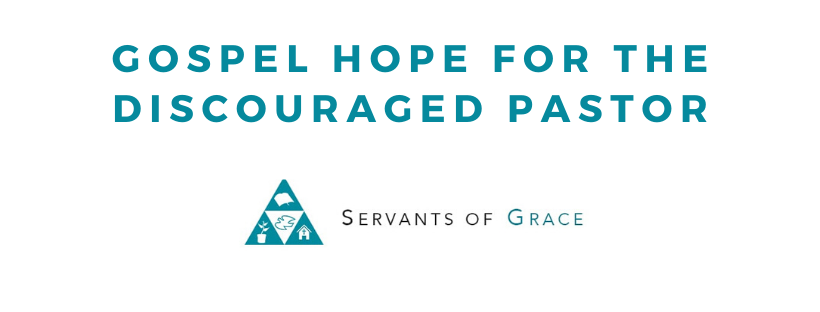⏱️ Estimated Reading Time: 7 min read
In Psalm 121, the Psalmist is in a valley and looks up to the hills and in desperation, asks, “From where does my help come?” During my first pastorate, I entered into a season of severe depression. Every day, I woke up to a mind full of fog. Every task I completed felt as if it were done while wading through pudding. During this season, accomplishing, even the smallest of tasks, required a herculean effort. I was in a valley alongside the Psalmist.
Getting Through My Challenging Season of Depression
I tried all of the things that you are supposed to do. I went to a secular counselor, but the counseling tickled my vanity and pride because the counseling was completely and fully about me. I took medicine; it dispelled the fog, but the heart issues remained. So what helped? The Psalms.
In my personal devotions, I began to daily read from the Psalms choosing a verse, or two, or ten and wrote them in my notebook. I meditated on the Psalms, and I began to see the rim of the valley. Little by little, the Psalms brought me up out of the valley. It wasn’t a silver bullet; it wasn’t a quick fix; it wasn’t a rapid recovery. But God’s Word did what God’s Word does: it seeped deep down in my soul and began to change me.
How the Psalms Helped Me in My Depression
The Psalms speak much about the righteous person. In my depression, I did not understand how I could be considered righteous. But here is the truth: in Christ, I am righteous. Through my reading of the Psalms, the Lord showed me that when the Psalmist talked about the righteous man, I was the righteous man but not in my own merits or power, but in Christ, I am a righteous man. In Psalm 15:1, when the Psalmist asks, “O LORD, who shall sojourn in your tent?” I can answer: I sojourn in the LORD’s tent. When the psalmist asks, “who shall dwell on your holy hill?” I am made righteous because of Christ.
Who is it that “walks blamelessly and does what is right”? I do, because of my union with Christ. Understanding union with Christ changed how I view myself as a Christian. In my depression, I viewed myself as worthless, as a waste-of-space, and as a failure. In Christ, I am not a failure, worthless, or a waste-of-space, but am made righteous by Christ (Ps. 34:17), not despised (Psalm 51:17), steadfast (Psalm 57:7), blessed (Psalm 34:8). Understanding these truths me to change how I viewed the righteousness of God and obedience to Christ.
Mark Jones in his article God Thinks More of Your Obedience Than You Do states it well, “God accepts us in Christ and so accepts our (very) imperfect obedience in such a way that we are properly described as ‘pure in heart’ and ‘good.’ It’s a remarkable truth.” The obedience, stumbling and faltering that it was, which I offered to Christ in the midst of my depression was obedience that God accepted because of my union with Christ. Grabbing hold of union with Christ has helped me in my own obedience to Christ to take those small, slow, stumbling steps out of the valley of depression.
The Psalms Teach the Purpose of Life
The Psalms taught me that holiness, not happiness or normalcy, is the purpose of life. The lie of secular psychology is that depression is abnormal and that happiness is normal. People talk about happy childhoods or happy lives as if those are the norms. The Psalms taught me that happiness is a fleeting thing and that it is a hard master. Psalm 42:3-5, “My tears have been my food day and night…Why are you cast down, O my soul, and why are you in turmoil within me?”
The Psalms run the gamut of human emotion. Some Psalms are ecstatic; some are somber; some are righteously angry. But the key is that each Psalm is not saying that ecstasy, or solemnity, or righteous anger, or joy is the normative emotion. The Psalms say that each emotion is normative at different moments and stages in life. The Psalmist showed me that it is okay to experience low points in which there is struggle and heartache and pain. In fact, struggle, heartache, and pain are many times the normal human experience.
The Psalms and Depression
The Psalmist also showed me that making depression normative is not healthy either. The Psalmists says “Why are you cast down, O my soul, and why are you in turmoil within me? Hope in God; for I shall again praise him, my salvation and my God” (Psalm 42:5, 11).
Depression is not an opportunity to play the victim; it is instead an opportunity to exercise your faith in God. The Psalmist is not saying “Hope in God” not because he is being trite, but rather because hope is the remedy to depression. Hope looks outside of oneself, and places trust in the God of the universe; depression tugs on us to look inward on ourselves. Hope is not a state, but a verb. We must hope in God because He is the God of hope.
Active Steps to Take to Hope in God
First, you actively turn to God in faith. This means you go to the local church, and worship God even if you cannot sing out or if you are weary.
Second, it means getting counsel. Find a biblical counselor who can walk with you through Scripture and point out these precious truths even when you cannot see them.
Third, read the Psalms. Many times in my depression, the last thing I wanted to do was read Scripture. It seemed to burden my soul rather than relieve the weight. But even in the midst of depression, you need biblical truth, because biblical truth brings biblical hope. And hope comes when God speaks who speaks in and through His Word to His people.
The Psalms and Waiting on the Lord
The above points lead us to another biblical phrase that the Psalmists used that helps: “wait on the Lord.” Waiting on the Lord means that the Psalmist feels as if the Lord were not there. You don’t wait for what you already have. Instead, the Psalmist commands us to wait on the Lord:
- “Wait for the LORD; be strong, and let your heart take courage; wait for the LORD” (27:14),
- “And now, O Lord, for what do I wait? My hope is in you.” (39:7),
- “I waited patiently for the LORD; he inclined to me and heard my cry.” (40:1), and so on.
In the midst of the depression, the Lord taught me to wait for Him. During periods of being depressed, the Lord felt as if He were a million miles away, which is why we must speak biblical truth to ourselves. He was not a million miles away, but right there, the entire time. Psalm 91:14, “Because he holds fast to me in love, I will deliver him; I will protect him, because he knows my name.”
How, then do you wait for the Lord? Courageously. It takes courage to wait on the Lord, to trust that He will come in His own time, He will work in your soul in his own time. We wait by crying out to Him and He hears our cries to Him. Psalm 77:1-2a “I cry aloud to God, aloud to God, and he will hear me. In the day of my trouble I seek the Lord.”
Encouragement for the Pastor
Pastor, if you are in the midst of depression, and it feels as if you are marching each day through a fog that will not lift, a slough which does not end, remember the Psalms in the following ways:
- Read the Psalms.
- Pray the Psalms.
- Trust the Psalms since they are part of God’s inspired Word.
Then wait on the Lord knowing he hears you, and He’s coming to help you. Psalm 121:1b-2a, “From where does my help come? My help comes from the LORD.” (Ps. 121:1b-2a)




